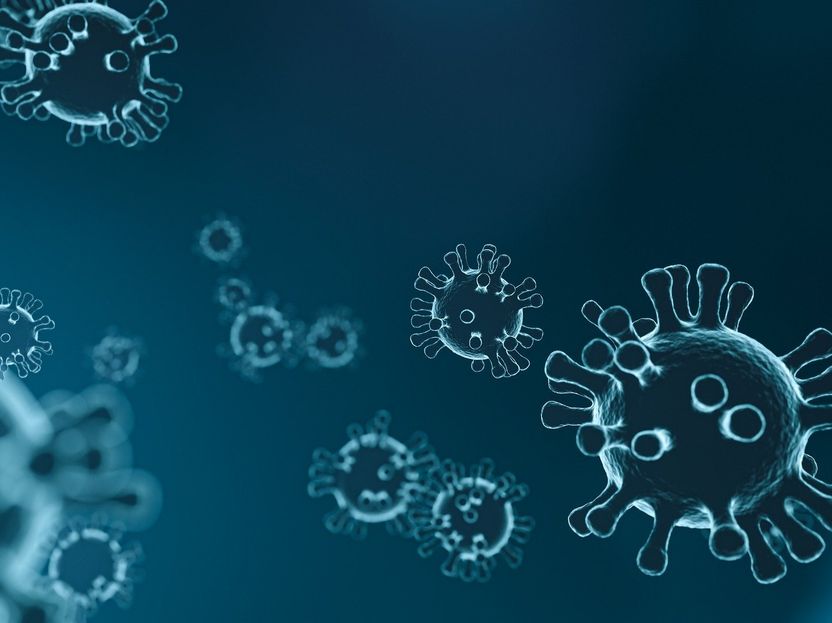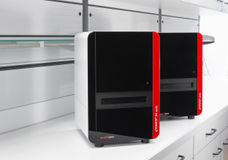New method leads ten times faster to corona test results
Method not only saves time, but also effort
Advertisement
Currently, it takes more than two hours to perform and evaluate a test for SARS-CoV-2 - and so a laboratory can only test a very limited number of people per day. Cell biologists at the University of Bielefeld have now developed a method in a study with several cooperation partners that delivers results around ten times faster. "The test only takes around 16 minutes," says Professor Dr. Christian Kaltschmidt from the Department of Cell Biology at Bielefeld University. "The method is also cheaper than conventional tests."

mattthewafflecat/ Pixabay
More than ten million coronavirus infections have now been confirmed worldwide. An effective vaccine or therapy against SARS-CoV-2 is not yet available. On top of this: Not every infected person develops symptoms. The most effective method of curbing the spread of the virus is therefore currently testing: those who are infected are isolated and do not spread the virus.
The most common procedure to test whether someone has become infected with SARS-CoV-2 is the so-called PCR test. They use the genetic material of the virus as a basis. This is also what the Bielefeld scientists did in their study. PCR tests always follow a similar pattern. First, genetic material of a test person is needed. This is usually obtained by a smear test of the mouth, nose or throat. "If a person is infected with SARS-CoV-2, the sample also contains genetic material of the virus, which is present as so-called RNA," said Kaltschmidt. The RNA molecules are isolated in a chemical process. However, the sample does not contain enough RNA for a test to detect it immediately. Therefore, it has to be amplified.
Method not only saves time, but also effort
This happens in a so-called polymerase chain reaction, which gave the PCR method its name (polymerase chain reaction). It takes place in a device called a thermal cycler. It raises and lowers the temperature according to a predetermined programme. In combination with certain additives, an enzyme with a copy function and stability at high temperatures, the genetic material is multiplied until there is enough to detect SARS-CoV-2 - if someone is infected.
The Bielefeld researchers have used a special thermal cycler - the NEXTGENPCR - for their method. Thanks to the special design, which includes several temperature zones, the reactions in the device run particularly effectively and fully automatically. "In the procedure, we have oriented ourselves to the so-called Drosten protocol of the Berlin Charité and the protocol of the Center of Disease Control and Prevention in Atlanta," says Kaltschmidt. With their method, the researchers were able to repeat the results of conventional PCR tests - only in a much shorter time and with less effort.
Special device can analyse 570 tests per hour
The thermocycler was developed by the Dutch company Molecular Biology Systems B.V. For the tests for the corona virus, the developers wrote software that reduces both the time required and the number of steps involved. "We have received a lot of positive feedback on this," said Gert de Vos, founder and CEO of Molecular Biology Systems. The device can analyse several samples in parallel - this means that a single thermal cycler can be used to analyse around 570 samples per hour. Molecular Biology Systems now works with governments and private laboratories in the USA, Europe, the Middle East and Africa.
Kaltschmidt sees many advantages in the new method. For example, such a test could be used in particular where rapid results are required. "For example, when cruise ships resume operations, they could test each person in a short time before they board the ship."
Note: This article has been translated using a computer system without human intervention. LUMITOS offers these automatic translations to present a wider range of current news. Since this article has been translated with automatic translation, it is possible that it contains errors in vocabulary, syntax or grammar. The original article in German can be found here.
Original publication
Ehsan Asghari, Anna Höving, Paula van Heijningen, Annika Kiel, Angela Kralemann-Köhler, Melanie Lütkemeyer, Jonathan Storm, Tanja Vollmer, Cornelius Knabbe, Barbara Kaltschmidt, Gert de Vos, Christian Kaltschmidt: Ultra-fast one-step RT-PCR protocol for the detection of SARS-CoV-2, veröffentlicht am 26. Juni 2020.
Other news from the department science
These products might interest you
Most read news
More news from our other portals
See the theme worlds for related content
Topic World PCR
This groundbreaking and highly versatile molecular technique of PCR allows us to amplify tiny amounts of genetic material on a large scale and analyze them in detail. Whether in medical diagnostics, forensic DNA analysis or research into genetic diseases - PCR is an indispensable tool that gives us deep insights into the world of DNA. Immerse yourself in the fascinating world of the polymerase chain reaction (PCR)!

Topic World PCR
This groundbreaking and highly versatile molecular technique of PCR allows us to amplify tiny amounts of genetic material on a large scale and analyze them in detail. Whether in medical diagnostics, forensic DNA analysis or research into genetic diseases - PCR is an indispensable tool that gives us deep insights into the world of DNA. Immerse yourself in the fascinating world of the polymerase chain reaction (PCR)!





























































